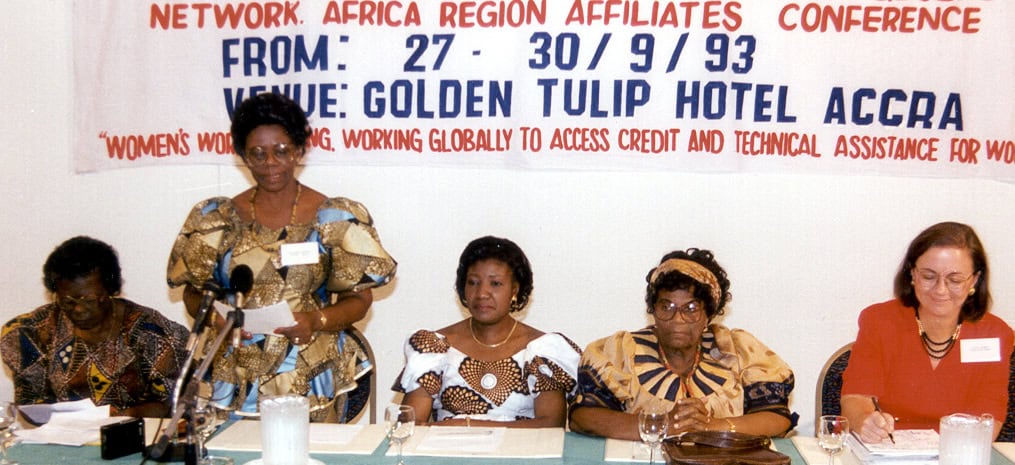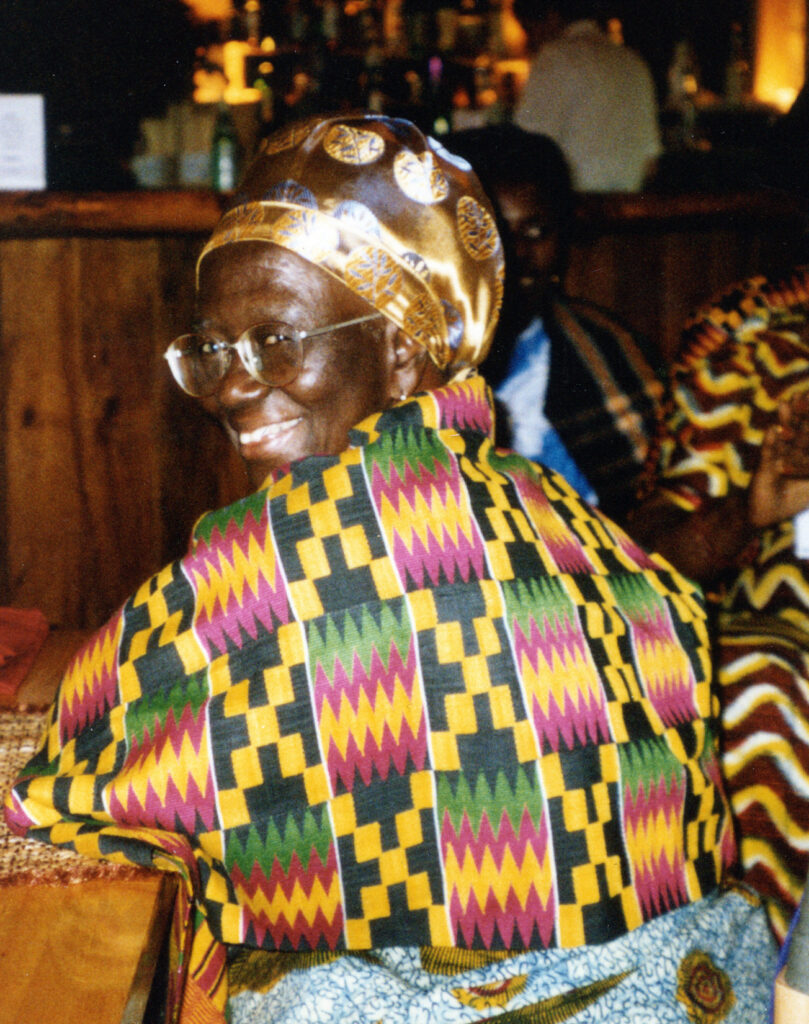Esther Afua Ocloo, a young woman who transformed a mere sixpence into 12 jars of marmalade, marking the genesis of her entrepreneurial journey, eventually emerged as one of Ghana’s foremost business leaders and a staunch advocate for women’s economic participation. As Women’s World Banking’s inaugural chairwoman, she etched her name in history. On April 18th, marking what would have been her 105th birthday, we pay homage to her pioneering spirit in microfinance, embodying resilience, determination, and a global impact.
Born into modest beginnings in Peki-Dzake, Ghana, in 1919, Esther’s narrative unfolded amidst trials and triumphs. Sent off to Accra by her tearful mother with scant resources, she pursued education with unwavering resolve. Leveraging 10 shillings, worth less than one United States dollar, she ventured into marmalade production, facing ridicule but forging ahead with unwavering determination. Reinvesting profits, she scaled her enterprise, securing contracts and establishing Nkulenu Industries, diversifying into various food products.
But Esther’s vision extended beyond personal success; it encompassed the empowerment of women at large. After six years, she had saved enough money to go to Britain to study food technology, preservation, nutrition and agriculture. She also learned leatherwork and lampshade-making in the hope of sharing the skills with rural women back home. Even as she continued running her own company upon her return, she devoted more and more of her time to improving women’s economic situation. For example, she established her own program on a farm to train women in agriculture, preparing and preserving food products and making handicrafts.
She paid for the program in part with her half of the Africa Prize, a $100,000 award she split with Olusegun Obasanjo, the current president of Nigeria, in 1990. It was presented by the Hunger Project for their leadership in working to end hunger in Africa.
”I have taught them to cost the things they sell and determine their profits,” she said. “You know what we found? We found that a woman selling rice and stew on the side of the street is making more money than most women in office jobs — but they are not taken seriously.”
Recognizing the transformative power of economic independence, she became an advocate for women’s economic empowerment. In 1975 at the UN’s First Women’s Conference in Mexico City, Ms. Ocloo found that ideas she had been developing with women in Ghana were also percolating elsewhere. The premise was simple: more than education, health care or family planning, women in poor countries need access to capital.
Only one year before the Conference, women in the US couldn’t have their own checking or savings accounts without their husbands’ signatures. That basic right wasn’t legalized until 1981 in India and 1985 in Ghana. As a rainstorm subsided outside, one woman from Wall Street saw a clearing by challenging the status quo. She stood up and stated, “Women have to own their own banking accounts.” Esther was already in violent agreement. Ideas poured from her peers after that. This simple yet profound statement planted the seed for something extraordinary – the first nonprofit focused solely on women’s economic empowerment through financial inclusion, starting with a commitment to help women access credit and their financial futures.
Alongside visionaries like that one woman from Wall Street, Michaela Walsh, and Ela Bhatt, Indian cooperative organizer (SEWA) and Gandhian, she laid the groundwork for WWB—an organization dedicated to making finance work for women.

Back in Ghana, Esther’s influence reverberated through the establishment of Women’s World Banking Ghana (WWBG) in 1982. As its co-founder and a driving force, she spearheaded initiatives to integrate philanthropy and business, demonstrating the transformative potential of sustainable institutions in uplifting women’s lives.
Esther, who always wore bright African clothes and loved to cook traditional meals, preferred to be known as Auntie Ocloo, in the Ghanaian tradition. She usually began meetings of bankers and others with a prayer, and often ended them with a song: ”We Are Wonderful.”
Days before she died, she was on the phone from her hospital bed to governmental officials arguing that microloans, rather than grants, should be specified in Ghana’s new budget.

As we celebrate Auntie Ocloo’s life and legacy, let us reaffirm our commitment to carrying forward her vision of a world where every woman has the opportunity to thrive. Through our collective efforts, may we honor her memory and ensure that her legacy of empowerment and resilience endures for generations to come.
Women’s World Banking has changed the lives of millions of women, transforming their households, businesses and communities, and driving inclusive growth globally through financial inclusion.
Today, using our sophisticated market and consumer research, we turn insights into real action to design and advocate for policy engagement, digital financial solutions (see Blanca’s story here), workplace leadership programs, and gender lens investing.
Help us reach the nearly billion women still excluded from the formal financial system. Donate now.



